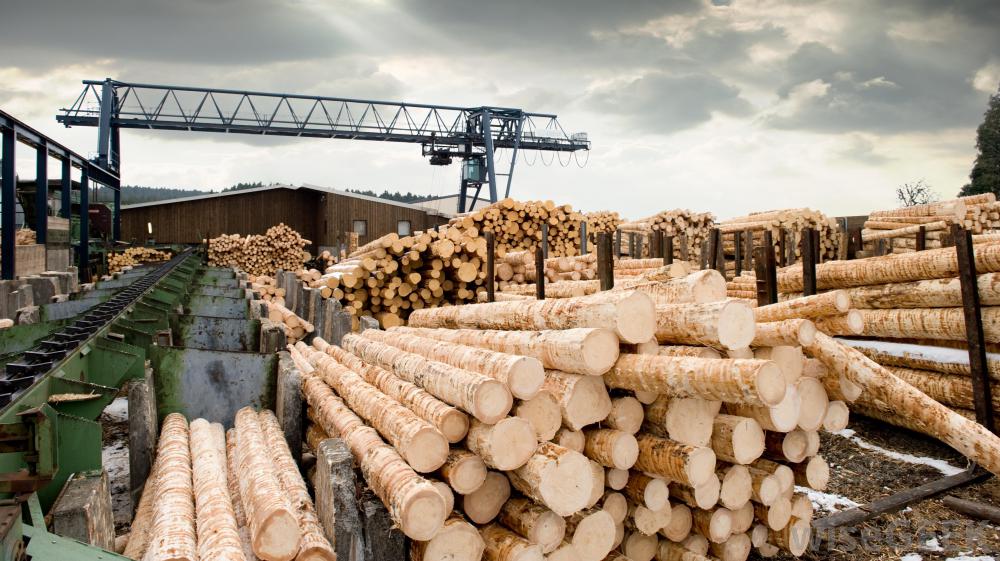BREAKING: Environmentalists vs. Trump Admin – A Lawsuit Over Timber Harvesting in Western NC! Will this legal battle reshape forestry and wildfire safety?
Environmentalists are suing the Trump Administration over a controversial decision allowing timber companies to clear forest floors of fallen trees in Western North Carolina. This lawsuit highlights the tension between environmental protection and economic benefits, as the timber from these trees could potentially be used to rebuild homes at a lower cost. Additionally, proponents argue that clearing these fallen trees could significantly reduce wildfire risks in the region. The outcome of this legal battle may have far-reaching implications for forest management practices and environmental conservation efforts in North Carolina and beyond. Stay updated on this unfolding situation.

#BREAKING: Environmentalists are now SUING the Trump Administration for allowing timber companies to clear forest floors of fallen trees in Western North Carolina.
The lumber from the trees could be used to rebuild homes cheaper…
…AND greatly decrease wildfire risk pic.twitter.com/G3SObfevVW
— Matt Van Swol (@matt_vanswol) April 9, 2025
BREAKING: Environmentalists Sue the Trump Administration
In a dramatic move, environmentalists have filed a lawsuit against the Trump Administration for permitting timber companies to clear forest floors of fallen trees in Western North Carolina. This decision has sparked a heated debate over environmental protection versus economic benefits. The lawsuit seeks to halt what many see as an aggressive and reckless approach to forest management.
The Environmental Concerns
Environmentalists argue that removing fallen trees disrupts ecosystems and threatens wildlife habitats. Forest floors play a crucial role in maintaining biodiversity, and clearing them can lead to long-term ecological damage. Fallen trees provide shelter and food for various species, and their removal could have a cascading effect on the local ecosystem. The plaintiffs in the lawsuit believe that preserving these natural resources is essential for sustaining the environment.
Economic Arguments for Timber Clearance
On the flip side, proponents of the timber clearance argue that the lumber harvested from these fallen trees could be used to rebuild homes at a lower cost. In regions still recovering from natural disasters, cheaper lumber can significantly impact rebuilding efforts. By allowing timber companies to process these fallen trees, the administration aims to stimulate the local economy and provide affordable housing options for residents.
Reducing Wildfire Risk
An important aspect of this debate is the potential to reduce wildfire risk. Advocates for timber clearance claim that by removing excess debris and fallen trees, the likelihood of wildfires decreases. In recent years, wildfires have become more frequent and devastating, and some argue that proactive forest management could mitigate these risks. However, environmentalists question the long-term efficacy of this approach, arguing that healthy forest ecosystems are more resilient to such disasters.
Public Opinion
The public’s reaction to this lawsuit is mixed. Many support the environmentalists’ stance, emphasizing the importance of protecting natural resources. Others see the economic benefits as a critical factor, particularly in areas where rebuilding efforts are desperately needed. This divide highlights a larger conversation about how we balance economic growth with environmental conservation. As the lawsuit progresses, it will be interesting to see how public sentiment shifts and how it influences policy decisions in the future.
The Road Ahead
As the legal battle unfolds, both sides will likely present compelling arguments about forest management’s future in Western North Carolina. This case serves as a reminder of the ongoing struggle between environmental protection and economic development. The outcome could set a precedent for similar cases across the country, shaping the landscape of forest management and conservation efforts.
Stay tuned for updates as this story develops. The implications of this lawsuit are significant, and the decisions made in the coming months will affect not just the forests of North Carolina, but also the broader conversation about how we manage our natural resources in an increasingly uncertain climate.
